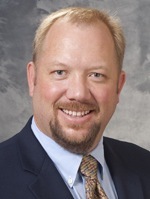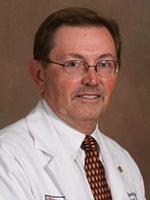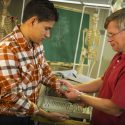UW-Madison awarded $8.3 million for new urological research center
The University of Wisconsin–Madison has been awarded an $8.3 million grant from the National Institutes of Health to create a research center focused on urological health.
The George O’Brien Center at UW–Madison is a collaboration with the University of Massachusetts-Boston to enhance the diagnosis and treatment of male urinary symptoms associated with hormones, aging, obesity and benign prostate enlargement.
Overall, the center’s goals are to study the fundamental mechanisms that lead to prostatic fibrosis — or changes in prostate tissue — and to study the relationship between lower urinary tract dysfunction and benign prostatic hyperplasia (BPH), a noncancerous disease that causes prostate enlargement.
Roughly half of men between the ages of 51 and 60 will develop BPH and nine in 10 will develop it by age 80. Of these men, 75 percent will develop at least one symptom of lower urinary tract dysfunction, such as urinary urgency and incontinence.

William A. Ricke
The center — led by William A. Ricke, director of research and associate professor in the University of Wisconsin School of Medicine and Public Health (SMPH) Department of Urology, and Dale E. Bjorling, associate dean for research and professor at the UW School of Veterinary Medicine (SVM) — is one of only three nationwide to focus on benign urological disease research.

Dale E. Bjorling
The “tremendous efforts” of Ricke, Bjorling and their team “should lead the way to reducing the pain and suffering of those with urinary difficulties,” says Stephen Nakada, chair of the Department of Urology at UW–Madison SMPH. “Moreover, the putative benefit of this research may significantly improve the overall quality of life of men with the disease and reduce the social and economic burdens.”
In addition to its effect on quality of life, the annual direct and indirect cost of BPH to the private sector amounts to $3.9 billion annually, according to a 2005 study.
The center will translate research findings into new tools for diagnosing and treating urinary dysfunction, says Ricke. Its researchers have already been in collaboration the last three years, developing diagnostic tools that enable clinicians to select tailored therapies for their urology patients. They plan to carry this forward.
The grant will support three projects that incorporate unique models of benign prostatic disease in mice and tissue analysis from BPH patients. It will also support the development of a robust database to house and make readily available results and pertinent information from the center.
“The use of animal models in conjunction with evaluation of information and samples collected from BPH patients provides an optimal approach to bring observations made in the laboratory to clinical practice as rapidly as possible,” says Bjorling, who notes that the center’s resources will be available to UW–Madison investigators and others.
“Moreover, the putative benefit of this research may significantly improve the overall quality of life of men with the disease and reduce the social and economic burdens.”
Stephen Nakada
Ricke says the grant will establish a “new state-of-the-art core facility to serve as an international research hub for identifying genetic, environmental, dietary and pharmacological factors that influence male urinary function.”
In addition to Ricke and Bjorling, other researchers affiliated with the center include Paul Marker, associate professor, associate dean for research, and vice chair of pharmaceutical sciences in the UW–Madison School of Pharmacy; Chad Vezina, assistant professor of comparative biosciences at UW–Madison SVM; and Jill Macoska of the University of Massachusetts-Boston College of Science and Mathematics.
The award represents the “crown jewel” among existing grants that already support collaborative research among this group of scientists, including a $3 million grant to establish a multidisciplinary career development program at UW–Madison for early stage urologic researchers, co-led by Bjorling.
The new center will further that mission, says Wade Bushman, professor of urology at UW–Madison SMPH, chair in urologic research, and a lead investigator on several of the existing collaborative grants.
“It will influence training for early career clinicians and researchers by providing access to opportunity pools via competitive grant funding mechanisms within the center, as well as access to the prominent national and international researchers expected to visit campus as part of this initiative,” Bushman says.



